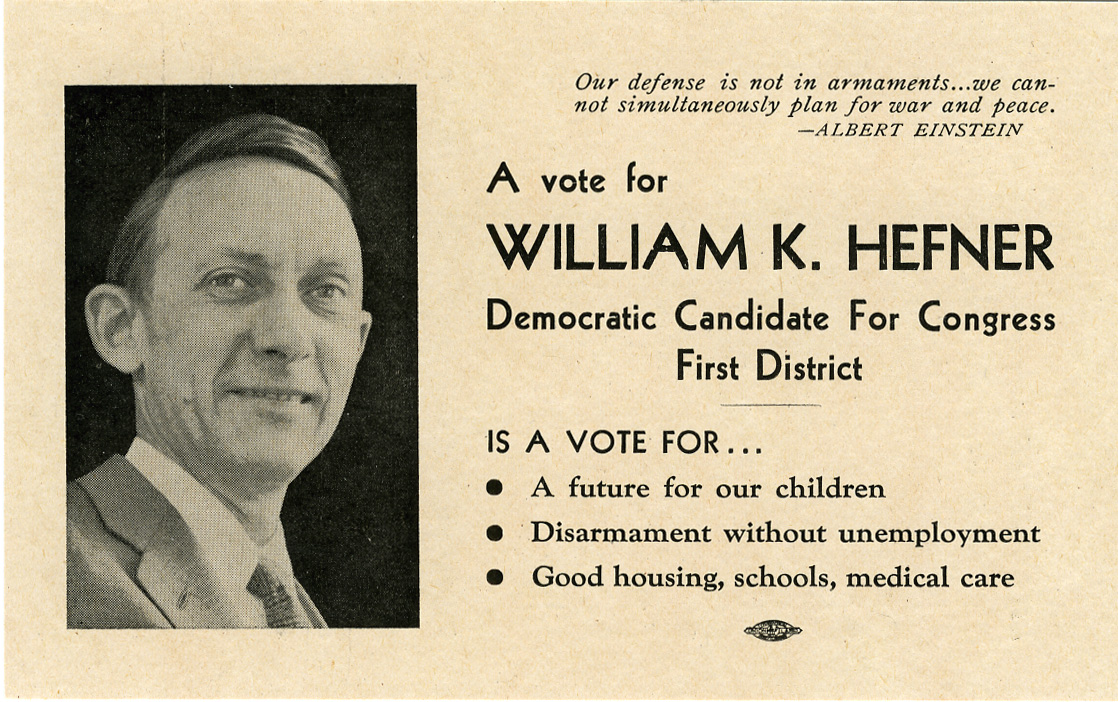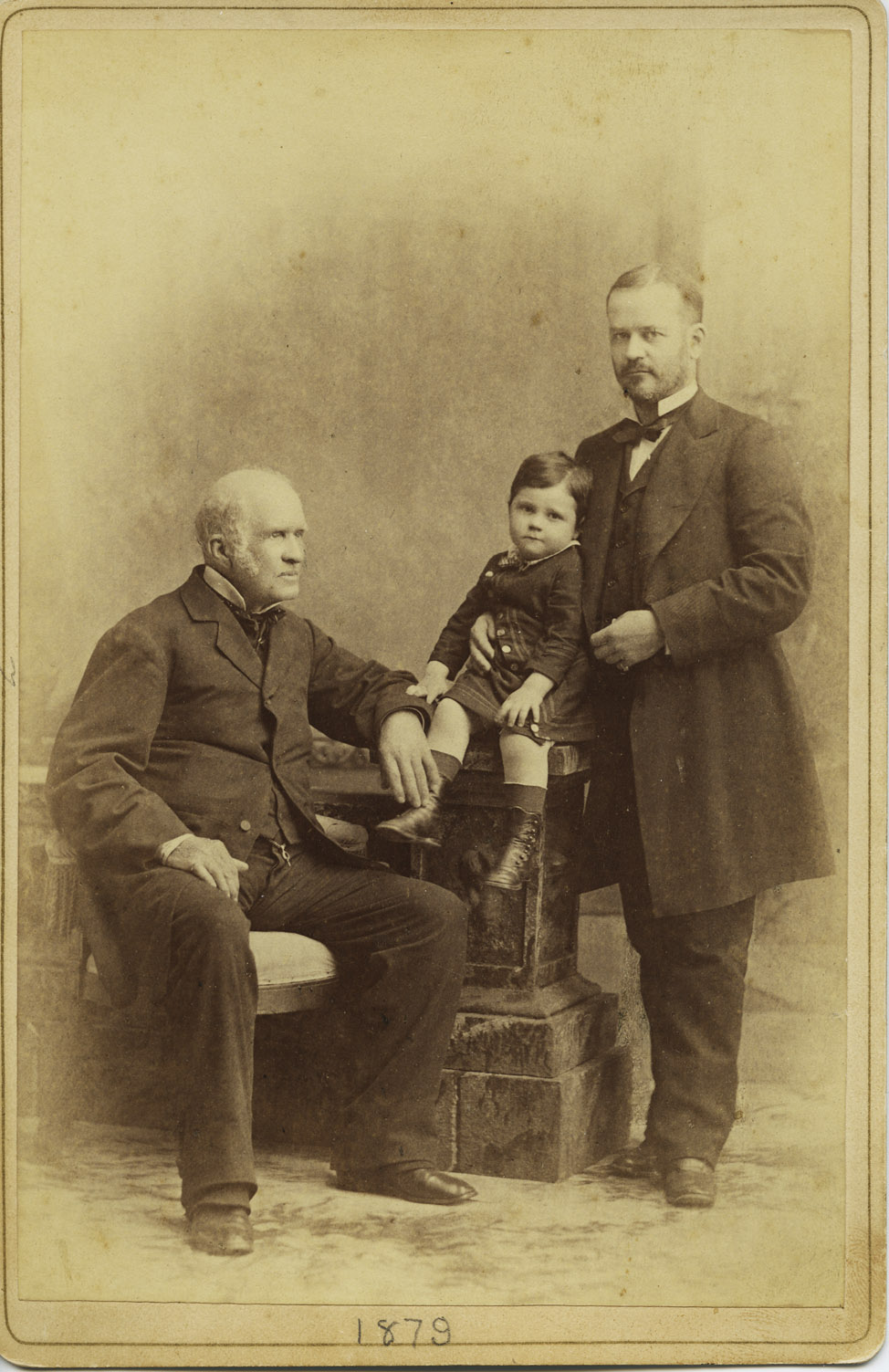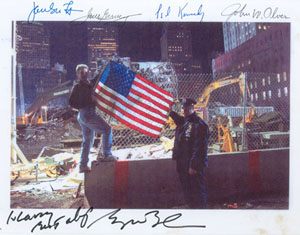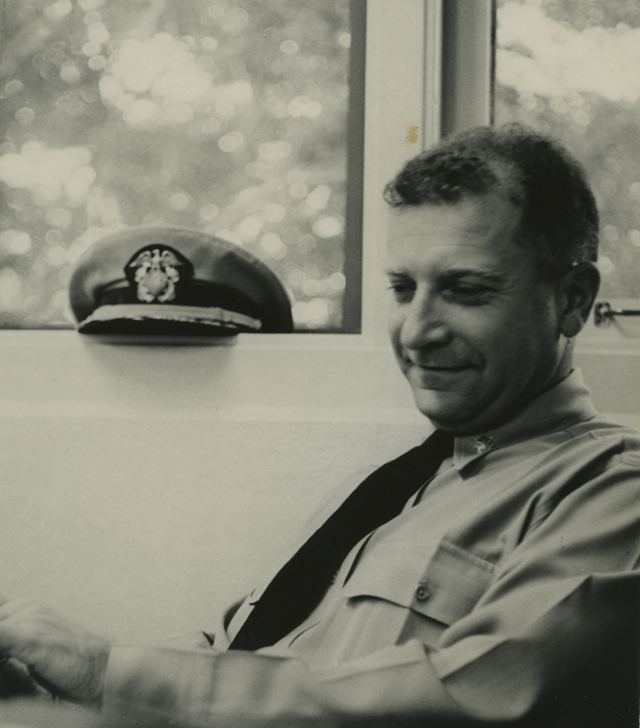William K. Hefner Papers

In 1960, William K. Hefner (1915-1993) became one of the first of new breed of radical pacifists to run for elective office, when he ran as a peace candidate for Congress in the 1st district of Massachusetts. An accountant from Greenfield, Hefner was involved at a national level with movements for peace and civil rights. An early member of SANE, a founder of Political Action for Peace in 1959 (now CPPAX) and the Greenfield Peace Center (1963), and an active member of the American Friends Service Committee, War Resisters League, Turn Toward Peace, and the World Without War Conference, Hefner was an energetic force in the movements for peace and disarmament, civil rights, and a more just economic system. He ran unsuccessfully for office in three elections between 1960 and 1964, and supported peace candidate H. Stuart Hughes in his bid for election to the U.S. Senate in 1962.
The Hefner papers offer a remarkable record of politically-engaged activism for peace and social justice in the early 1960s. With an intensely local focus, Hefner was tied in to the larger movements at the state and national level, corresponding with major figures such as A.J. Muste, Bayard Rustin, Benjamin Spock, and Arthur Springer. The collection includes particularly rich documentation of the early years of Political Action for Peace, which Hefner helped found, with correspondence, minutes of meetings, and publications, as well as equally rich materials on Hefner’s bids for congress in 1960 and 1962.



